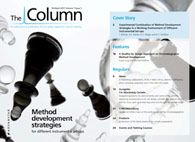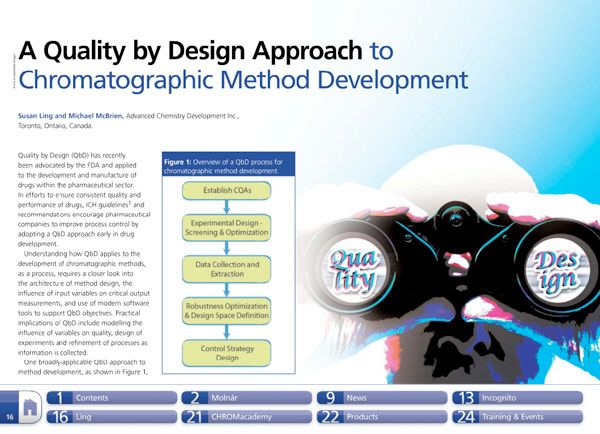A Quality by Design Approach to Chromatographic Method Development
An overview of a QbD process for chromatographic method development.
Quality by Design (QbD) has recently been advocated by the FDA and applied to the development and manufacture of drugs within the pharmaceutical sector. In efforts to ensure consistent quality and performance of drugs, ICH guidelines1 and recommendations encourage pharmaceutical companies to improve process control by adopting a QbD approach early in drug development.
Understanding how QbD applies to the development of chromatographic methods, as a process, requires a closer look into the architecture of method design, the influence of input variables on critical output measurements, and use of modern software tools to support QbD objectives. Practical implications of QbD include modelling the influence of variables on quality, design of experiments and refinement of processes as information is collected.

Polysorbate Quantification and Degradation Analysis via LC and Charged Aerosol Detection
April 9th 2025Scientists from ThermoFisher Scientific published a review article in the Journal of Chromatography A that provided an overview of HPLC analysis using charged aerosol detection can help with polysorbate quantification.
Analyzing Vitamin K1 Levels in Vegetables Eaten by Warfarin Patients Using HPLC UV–vis
April 9th 2025Research conducted by the Universitas Padjadjaran (Sumedang, Indonesia) focused on the measurement of vitamin K1 in various vegetables (specifically lettuce, cabbage, napa cabbage, and spinach) that were ingested by patients using warfarin. High performance liquid chromatography (HPLC) equipped with an ultraviolet detector set at 245 nm was used as the analytical technique.
Removing Double-Stranded RNA Impurities Using Chromatography
April 8th 2025Researchers from Agency for Science, Technology and Research in Singapore recently published a review article exploring how chromatography can be used to remove double-stranded RNA impurities during mRNA therapeutics production.













